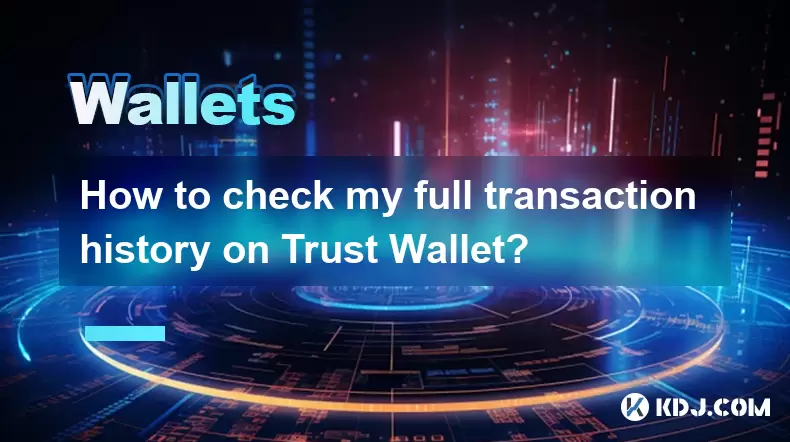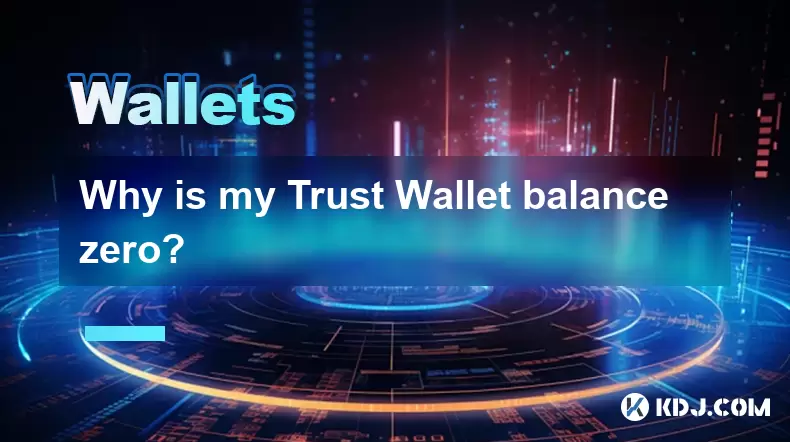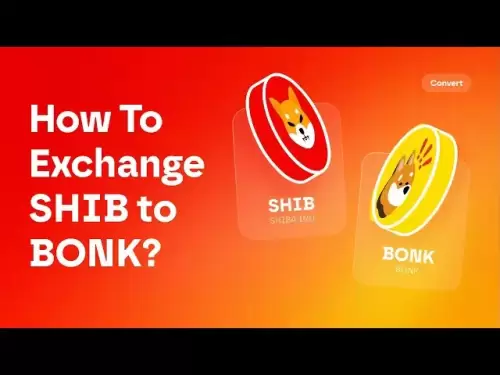-
 Bitcoin
Bitcoin $112400
-1.07% -
 Ethereum
Ethereum $3409
-3.27% -
 XRP
XRP $2.784
-6.60% -
 Tether USDt
Tether USDt $0.9997
-0.03% -
 BNB
BNB $739.3
-2.09% -
 Solana
Solana $158.0
-2.90% -
 USDC
USDC $0.9998
-0.02% -
 TRON
TRON $0.3213
-0.94% -
 Dogecoin
Dogecoin $0.1929
-5.01% -
 Cardano
Cardano $0.6974
-2.82% -
 Hyperliquid
Hyperliquid $36.69
-2.31% -
 Sui
Sui $3.327
-4.80% -
 Stellar
Stellar $0.3672
-5.18% -
 Chainlink
Chainlink $15.65
-3.07% -
 Bitcoin Cash
Bitcoin Cash $525.0
-1.68% -
 Hedera
Hedera $0.2291
-6.00% -
 Avalanche
Avalanche $20.91
-2.96% -
 Ethena USDe
Ethena USDe $1.000
0.00% -
 Toncoin
Toncoin $3.520
-1.12% -
 UNUS SED LEO
UNUS SED LEO $8.968
0.14% -
 Litecoin
Litecoin $105.7
0.26% -
 Shiba Inu
Shiba Inu $0.00001181
-1.79% -
 Polkadot
Polkadot $3.492
-2.08% -
 Uniswap
Uniswap $8.800
-3.10% -
 Dai
Dai $0.9999
-0.01% -
 Monero
Monero $289.9
-3.17% -
 Bitget Token
Bitget Token $4.243
-1.27% -
 Pepe
Pepe $0.00001006
-3.67% -
 Cronos
Cronos $0.1248
-5.68% -
 Aave
Aave $249.7
-2.50%
Can mnemonics be cracked?
Protecting mnemonics is paramount as they hold the key to accessing crypto assets; compromised mnemonics due to weak passphrases can result in catastrophic losses.
Feb 04, 2025 at 05:49 pm

Can Mnemonics Be Cracked?
Key Points:
- Mnemonics are vulnerable to brute-force attacks if the passphrase is weak.
- Security measures like strong passphrases, hardware wallets, and multi-factor authentication enhance mnemonic security.
- Compromised mnemonics can lead to complete loss of cryptocurrency assets.
Detailed Explanation:
Mnemonics are a sequence of words used to restore access to cryptocurrency wallets. They serve as a backup for private keys, which are complex alphanumeric codes that control access to cryptocurrency funds. Mnemonics are easier to remember than private keys but also introduce a potential security vulnerability.
1. Brute-Force Attacks:
Cracking mnemonics involves brute-force attacks, which try various combinations of words until the correct sequence is found. The probability of success depends on the strength of the passphrase used to generate the mnemonic. Weak passphrases, such as common words or phrases, can be cracked relatively easily using specialized software.
2. Enhanced Security Measures:
To protect against brute-force attacks, several security measures can be implemented:
- Strong Passphrases: Generate passphrases using multiple random words (at least 24) taken from an official BIP39 word list.
- Hardware Wallets: Store mnemonics on hardware wallets, which are secure devices that protect the seed from online attacks.
- Multi-Factor Authentication: Implement two-factor authentication (2FA) or multiple-factor authentication (MFA) to require additional verification methods when accessing the wallet.
3. Consequences of Compromised Mnemonics:
If a mnemonic is compromised, the attacker gains complete access to the associated cryptocurrency wallet. They can steal all the funds and conduct malicious transactions without the victim's knowledge. Therefore, it is crucial to protect mnemonics as they hold the key to accessing and controlling cryptocurrency assets.
FAQs:
Q: How long does it take to crack a mnemonic?
A: The time required depends on the strength of the passphrase. A weak passphrase can be cracked within minutes using automated tools.
Q: Can I recover stolen funds if my mnemonic is compromised?
A: Recovery chances are slim. Once the mnemonic is compromised, the attacker has full control over the wallet and can transfer the funds quickly.
Q: Is it safe to store mnemonics online?
A: Avoid storing mnemonics online, as they can be exposed to hacking attempts. Physical storage methods, such as writing them down on paper or etching them in metal, are more secure.
Q: What is seed phrase protection?
A: Seed phrase protection refers to measures taken to encrypt and safeguard mnemonic seed phrases from unauthorized access or theft. It involves using advanced cryptographic algorithms and hardware security modules to protect sensitive crypto data.
Q: What is BIP39?
A: BIP39 is a standardized word list of 2,048 English words used to generate mnemonic seed phrases. It ensures interoperability between different cryptocurrency wallets and exchanges that support BIP39.
Disclaimer:info@kdj.com
The information provided is not trading advice. kdj.com does not assume any responsibility for any investments made based on the information provided in this article. Cryptocurrencies are highly volatile and it is highly recommended that you invest with caution after thorough research!
If you believe that the content used on this website infringes your copyright, please contact us immediately (info@kdj.com) and we will delete it promptly.
- BlockDAG, SEI, Ethena: Top Crypto Performers Under the Microscope
- 2025-08-03 10:50:16
- Bitcoin Blasts Past $119K: How Institutional Adoption and Macro Shifts Fuel the Fire
- 2025-08-03 10:55:16
- Crypto, Grok, and August: Decoding the Latest Trends and Insights
- 2025-08-03 11:10:16
- Crypto, Phishing, and Your Wallet: A New Yorker's Guide to Staying Safe
- 2025-08-03 10:30:16
- Troller Cat Meme Coin Presale Soars: A New King in the Crypto Jungle?
- 2025-08-03 10:30:16
- Grayscale, Altcoin Trust, and Mid-Cap Mania: What's the Deal?
- 2025-08-03 08:50:16
Related knowledge

What is a watch-only wallet in Trust Wallet?
Aug 02,2025 at 03:36am
Understanding the Concept of a Watch-Only WalletA watch-only wallet in Trust Wallet allows users to monitor a cryptocurrency address without having ac...

How to fix a stuck pending transaction in Trust Wallet?
Aug 03,2025 at 06:14am
Understanding Why Transactions Get Stuck in Trust WalletWhen using Trust Wallet, users may occasionally encounter a pending transaction that appears t...

What is a multi-coin wallet in Trust Wallet?
Aug 03,2025 at 04:43am
Understanding Multi-Coin Wallets in Trust WalletA multi-coin wallet in Trust Wallet refers to a digital wallet that supports multiple cryptocurrencies...

How to switch between networks in Trust Wallet?
Aug 02,2025 at 12:36pm
Understanding Network Switching in Trust WalletSwitching between networks in Trust Wallet allows users to manage assets across different blockchains s...

How to check my full transaction history on Trust Wallet?
Aug 02,2025 at 09:24am
Understanding Transaction History in Trust WalletTrust Wallet is a widely used non-custodial cryptocurrency wallet that supports a broad range of bloc...

Why is my Trust Wallet balance zero?
Aug 02,2025 at 03:49am
Understanding Trust Wallet Balance Display IssuesIf you're seeing a zero balance in your Trust Wallet despite knowing you've previously received or se...

What is a watch-only wallet in Trust Wallet?
Aug 02,2025 at 03:36am
Understanding the Concept of a Watch-Only WalletA watch-only wallet in Trust Wallet allows users to monitor a cryptocurrency address without having ac...

How to fix a stuck pending transaction in Trust Wallet?
Aug 03,2025 at 06:14am
Understanding Why Transactions Get Stuck in Trust WalletWhen using Trust Wallet, users may occasionally encounter a pending transaction that appears t...

What is a multi-coin wallet in Trust Wallet?
Aug 03,2025 at 04:43am
Understanding Multi-Coin Wallets in Trust WalletA multi-coin wallet in Trust Wallet refers to a digital wallet that supports multiple cryptocurrencies...

How to switch between networks in Trust Wallet?
Aug 02,2025 at 12:36pm
Understanding Network Switching in Trust WalletSwitching between networks in Trust Wallet allows users to manage assets across different blockchains s...

How to check my full transaction history on Trust Wallet?
Aug 02,2025 at 09:24am
Understanding Transaction History in Trust WalletTrust Wallet is a widely used non-custodial cryptocurrency wallet that supports a broad range of bloc...

Why is my Trust Wallet balance zero?
Aug 02,2025 at 03:49am
Understanding Trust Wallet Balance Display IssuesIf you're seeing a zero balance in your Trust Wallet despite knowing you've previously received or se...
See all articles

























































































